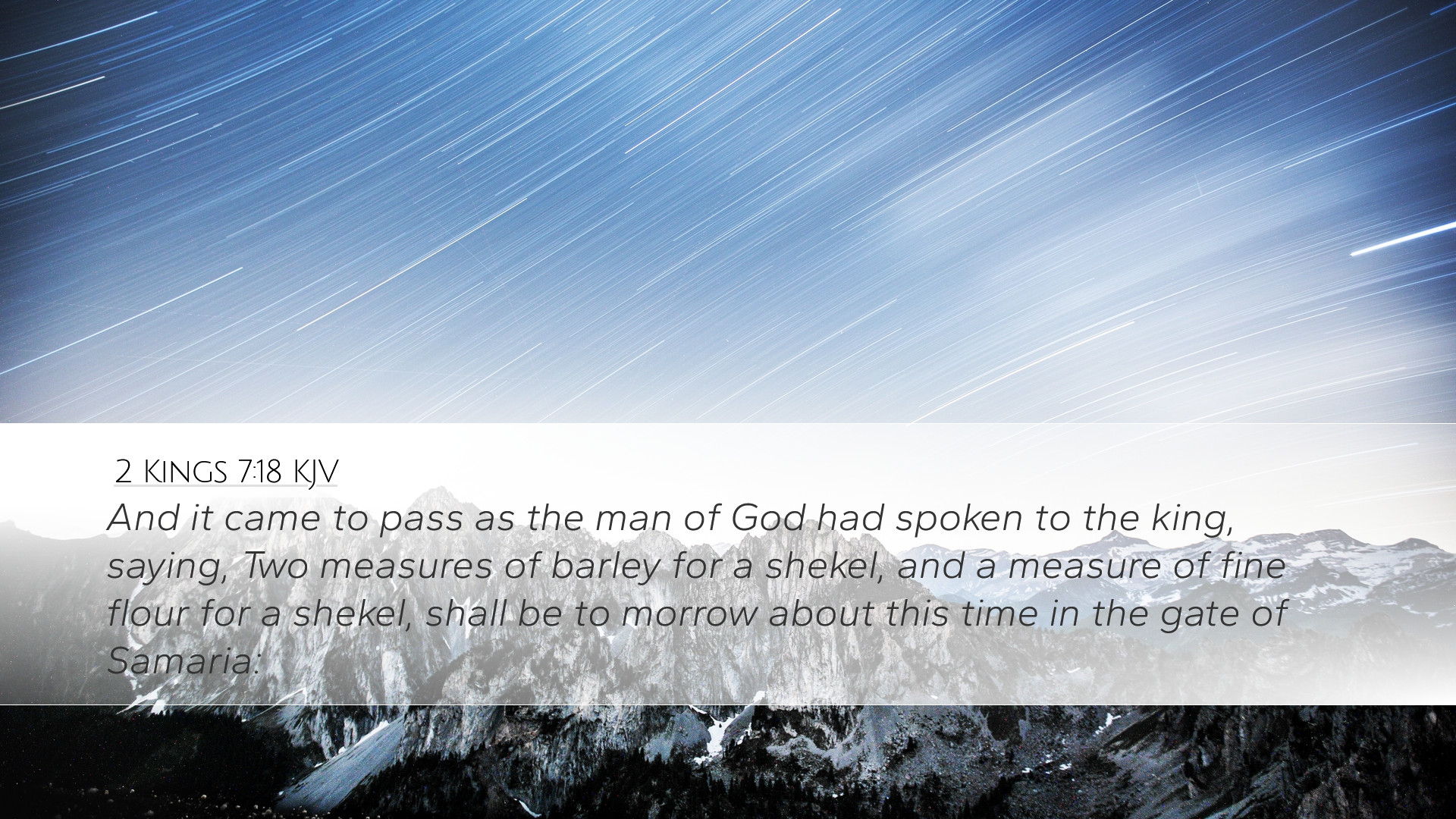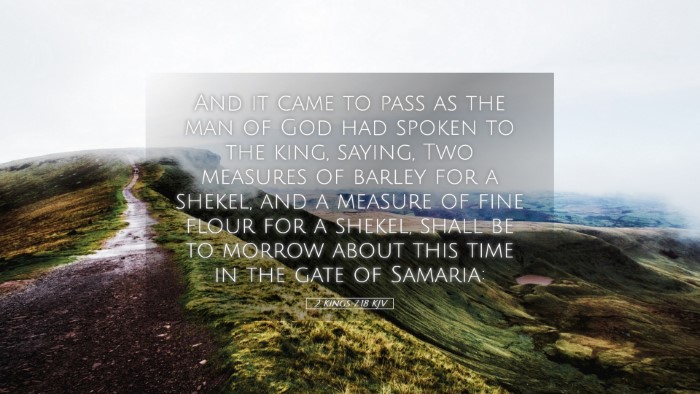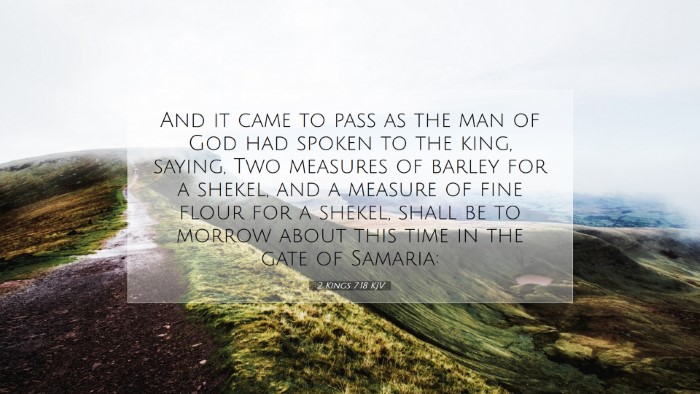Old Testament
Genesis Exodus Leviticus Numbers Deuteronomy Joshua Judges Ruth 1 Samuel 2 Samuel 1 Kings 2 Kings 1 Chronicles 2 Chronicles Ezra Nehemiah Esther Job Psalms Proverbs Ecclesiastes Song of Solomon Isaiah Jeremiah Lamentations Ezekiel Daniel Hosea Joel Amos Obadiah Jonah Micah Nahum Habakkuk Zephaniah Haggai Zechariah Malachi2 Kings 7:18
2 Kings 7:18 KJV
And it came to pass as the man of God had spoken to the king, saying, Two measures of barley for a shekel, and a measure of fine flour for a shekel, shall be to morrow about this time in the gate of Samaria:
2 Kings 7:18 Bible Commentary
Commentary on 2 Kings 7:18
Bible Verse: "And it came to pass, as the man of God had spoken to the king, saying, Two measures of barley for a shekel, and a measure of fine flour for a shekel, shall be to morrow about this time in the gate of Samaria." (2 Kings 7:18)
Introduction
This verse is part of a larger narrative that demonstrates God's faithfulness and the importance of faith amidst despair. In the context of the siege of Samaria and Israel's dire situation, the prophecy presented by the man of God, likely Elisha, serves as a beacon of hope. This commentary synthesizes insights from several public domain authors to provide a deeper understanding of the text.
Contextual Analysis
The events of 2 Kings 7 unfold during a period of severe famine in Samaria due to a prolonged siege by the Arameans. The conditions were dire, with food scarcity reaching critical levels. The expectations of the people were exceedingly low, making Elisha's prophecy all the more remarkable.
Historical Background
Matthew Henry notes that this verse illustrates God's ability to turn around desperate situations. He emphasizes how the prophetic declarations of Elisha were fulfilled in the most unexpected manner, providing evidence of God's sovereignty even in troubling times.
Elisha's Prophetic Assurance
Albert Barnes points out that the prophecy's specific details regarding the prices of barley and flour underscore the miraculous and sudden nature of God's deliverance. He highlights how the terms “two measures of barley for a shekel” and “a measure of fine flour for a shekel” should be understood against the backdrop of extreme scarcity, where food would normally be priced far beyond what is stated here.
Theological Implications
This passage serves to remind believers of God's provision and His ability to work miracles in extraordinary circumstances. Adam Clarke elaborates on this theme, indicating that God's promises can often be fulfilled in ways that seem impossible to human understanding. Clarke encourages pastors and scholars to emphasize the importance of faith in God's word, even when circumstances suggest otherwise.
The Nature of Faith
Faith involves trusting in God's promises despite what our immediate situation may portray. The fulfillment of Elisha's prophecy acts as a strong exhortation to faith in this context. Henry asserts that a visible manifestation of God’s promise, as experienced by those in Samaria, fortifies believers to trust in God's timing and methods.
Application for Today
In applying this passage, it is crucial for modern readers to reflect deeply on God's provision in their lives. Just as famine represented physical scarcity for the people of Samaria, many individuals today experience spiritual or emotional famine. However, the assurance that comes from faith in God's promises offers hope.
Encouragement for Ministry
Pastors can draw from this text a profound message for their congregations: God's promises will come to pass. This verse encourages leaders to cultivate an atmosphere of trust and hope among their flocks. Instead of succumbing to despair, communities of faith are invited to look expectantly for God's intervention, reinforcing the importance of prayer and faith in community.
Conclusion
2 Kings 7:18 encapsulates a moment of profound hope amidst despair. Through the prophetic words of Elisha, we see a demonstration of God's faithfulness and the transformative power of faith. As we meditate on this passage, let us remember that God's deliverance may not come in the way we expect, but if we hold onto His promises, we can find peace and assurance in His provision.


